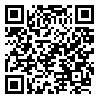Volume 9, Issue 2 (June 2022)
Health Spiritual Med Ethics 2022, 9(2): 109-112 |
Back to browse issues page
Download citation:
BibTeX | RIS | EndNote | Medlars | ProCite | Reference Manager | RefWorks
Send citation to:



BibTeX | RIS | EndNote | Medlars | ProCite | Reference Manager | RefWorks
Send citation to:
Jahani Fard A, Ahmari Tehran H, Lorestani S, Akrami S M, Heidari A, Shokouhi Tabar M. Tolerance As an Effective Step to Stabilize Ethical Relations in the Health System. Health Spiritual Med Ethics 2022; 9 (2) :109-112
URL: http://jhsme.muq.ac.ir/article-1-493-en.html
URL: http://jhsme.muq.ac.ir/article-1-493-en.html
Amir Jahani Fard * 

 1, Hoda Ahmari Tehran2
1, Hoda Ahmari Tehran2 

 , Sajjad Lorestani3
, Sajjad Lorestani3 

 , Seyed Mohsen Akrami3
, Seyed Mohsen Akrami3 

 , Akram Heidari2
, Akram Heidari2 

 , Mahmoud Shokouhi Tabar4
, Mahmoud Shokouhi Tabar4 




 1, Hoda Ahmari Tehran2
1, Hoda Ahmari Tehran2 

 , Sajjad Lorestani3
, Sajjad Lorestani3 

 , Seyed Mohsen Akrami3
, Seyed Mohsen Akrami3 

 , Akram Heidari2
, Akram Heidari2 

 , Mahmoud Shokouhi Tabar4
, Mahmoud Shokouhi Tabar4 


1- Tolo-e-Ruzhaye Khoda Institute, Qom, Iran. , jahanifard@gmail.com
2- Spiritual Health Research Center, Qom University of Medical Sciences, Qom, Iran.
3- Tolo-e-Ruzhaye Khoda Institute, Qom, Iran.
4- Faculty of Health and Religion, Qom University of Medical Sciences, Qom, Iran
2- Spiritual Health Research Center, Qom University of Medical Sciences, Qom, Iran.
3- Tolo-e-Ruzhaye Khoda Institute, Qom, Iran.
4- Faculty of Health and Religion, Qom University of Medical Sciences, Qom, Iran
Abstract: (860 Views)
With the institutionalization of tolerance in the health system, the level of intimacy increases, and the possibility of benefiting more than the company of patients and their companions are provided. Tolerance reduces the number of damages by improving the level of security and improves the health level by facilitating the achievement of goals. To achieve the above positive points, it seems necessary to have a written program in this field, especially considering the cultural and religious characteristics of Iran.
Type of Study: Commentary |
Subject:
General
Received: 2022/07/16 | Accepted: 2022/11/15 | Published: 2022/12/31
Received: 2022/07/16 | Accepted: 2022/11/15 | Published: 2022/12/31
References
1. Terkarani M. [Investigating and measuring the state of social tolerance in Lorestan (Persian)]. Iran Soc Sci Re. 2018; 3:133-59. [Link]
2. Galeotti AE. Do we need tolerance as a moral virtue? Res Publica. 2001; 7(3):273-92. [DOI:10.1023/A:1012217012310] [DOI:10.1023/A:1012217012310]
3. Côté RR, Erickson BH. Untangling the roots of tolerance: How forms of social capital shape attitudes toward ethnic minorities and immigrants. Am Behav Sci. 2009; 52(12):1664-89. [DOI:10.1177/0002764209331532] [DOI:10.1177/0002764209331532]
4. Ali bin Musa al-Reza. [Al-fiqh al-Reza (Arabic)]. Tehran: Malek library; 1694. [Link]
5. Hassan bin Ali. [Al-tafsir al-mansoob ela imam al-Hasan al-Askari (Arabic)]. Qom: Al-Imam al-Mahdi School; 1989. [Link]
6. Payandeh A. [Nahj al-Fasaha (Persian)]. Mashhad: Omid Mehr; 2013. [Link]
7. Amadi A. [Tasnif-e qorar-ol hekam va dorar-ol kalem (Arabic)]. Qom; Islamic Propagation Office of Qom Seminary; 1999. [Link]
8. Arafi A, Mehri RT. [The role of tolerance in education and instilment of devotional values with a jurisprudential approach (Persian)]. Educ Jurisprud Stud. 2018- 2019; 5(10). [Link]
9. Vollhardt JK, Migacheva K, Tropp LR. Social cohesion and tolerance for group differences. In: Rivera J, editor. Handbook on building cultures of peace. New York: Springer; 2009. [DOI:10.1007/978-0-387-09575-2_10] [DOI:10.1007/978-0-387-09575-2_10]
10. Deilami, HM. Irshad al-qolub ela al-sawab. Qom: Library of Islamic Heritage Revival Center; 1979. [Link]
11. Sandu D. European differentiations of social tolerance. Rom Soc.2002; 4:1-39. [Link]
12. Golabi F, Rezayi A. [The impact of social participation on social tolerance (Persian)]. Q Soc Stud Res Iran. 2013; 2(1):61-86. [DOI:10.22059/JISR.2013.36577]
Send email to the article author
| Rights and permissions | |
 |
This work is licensed under a Creative Commons Attribution-NonCommercial 4.0 International License. |







